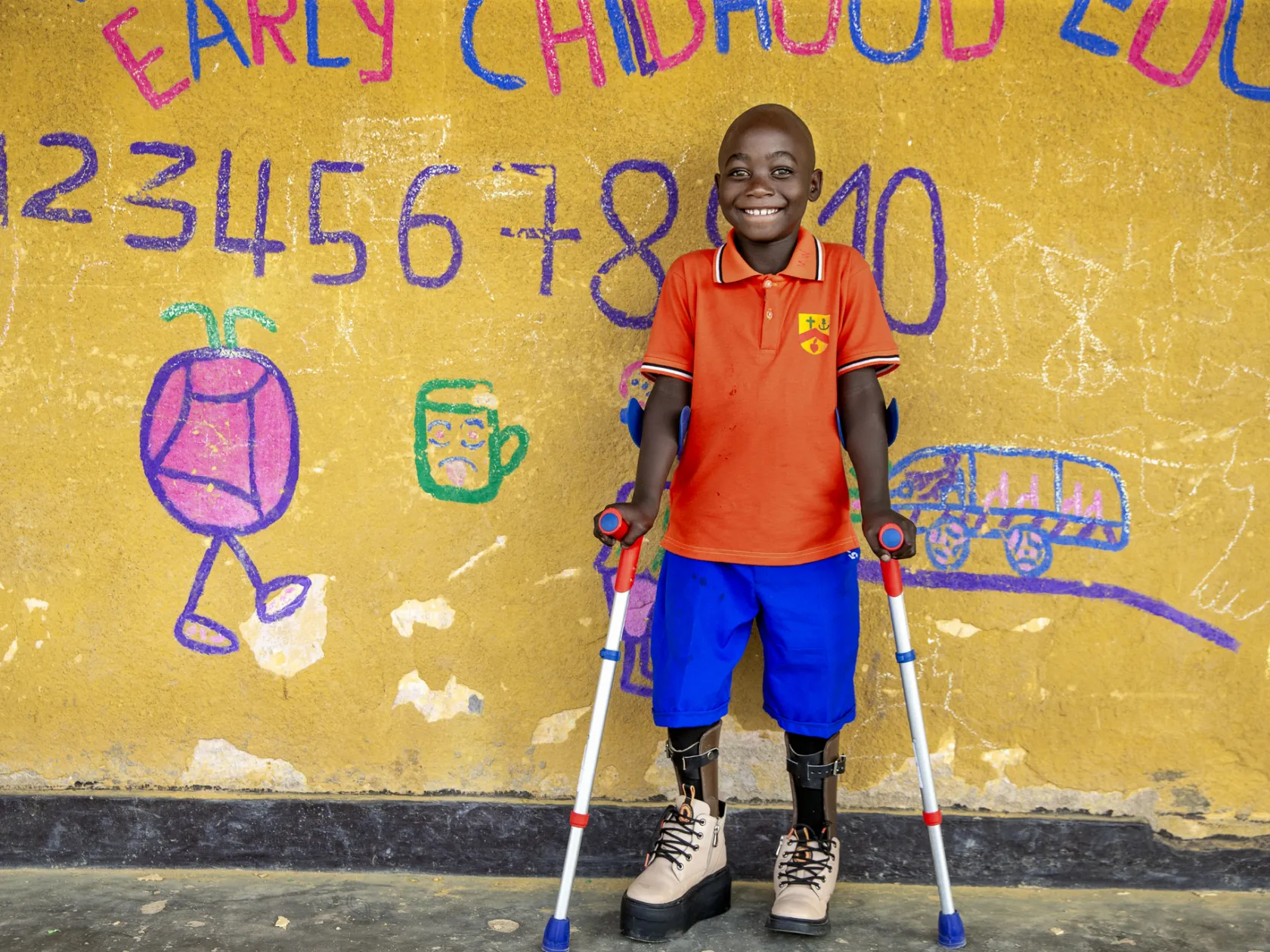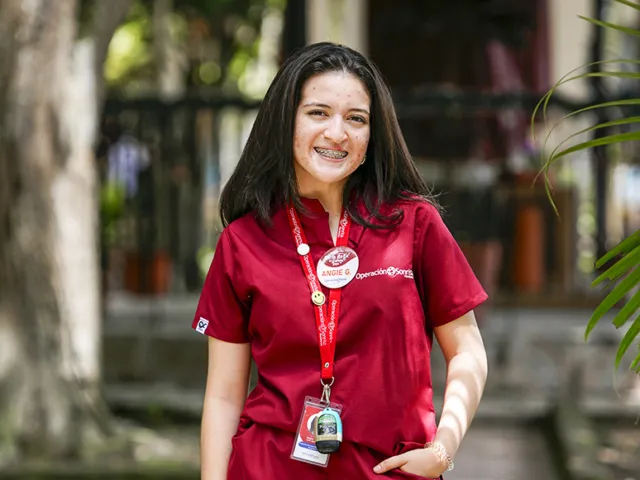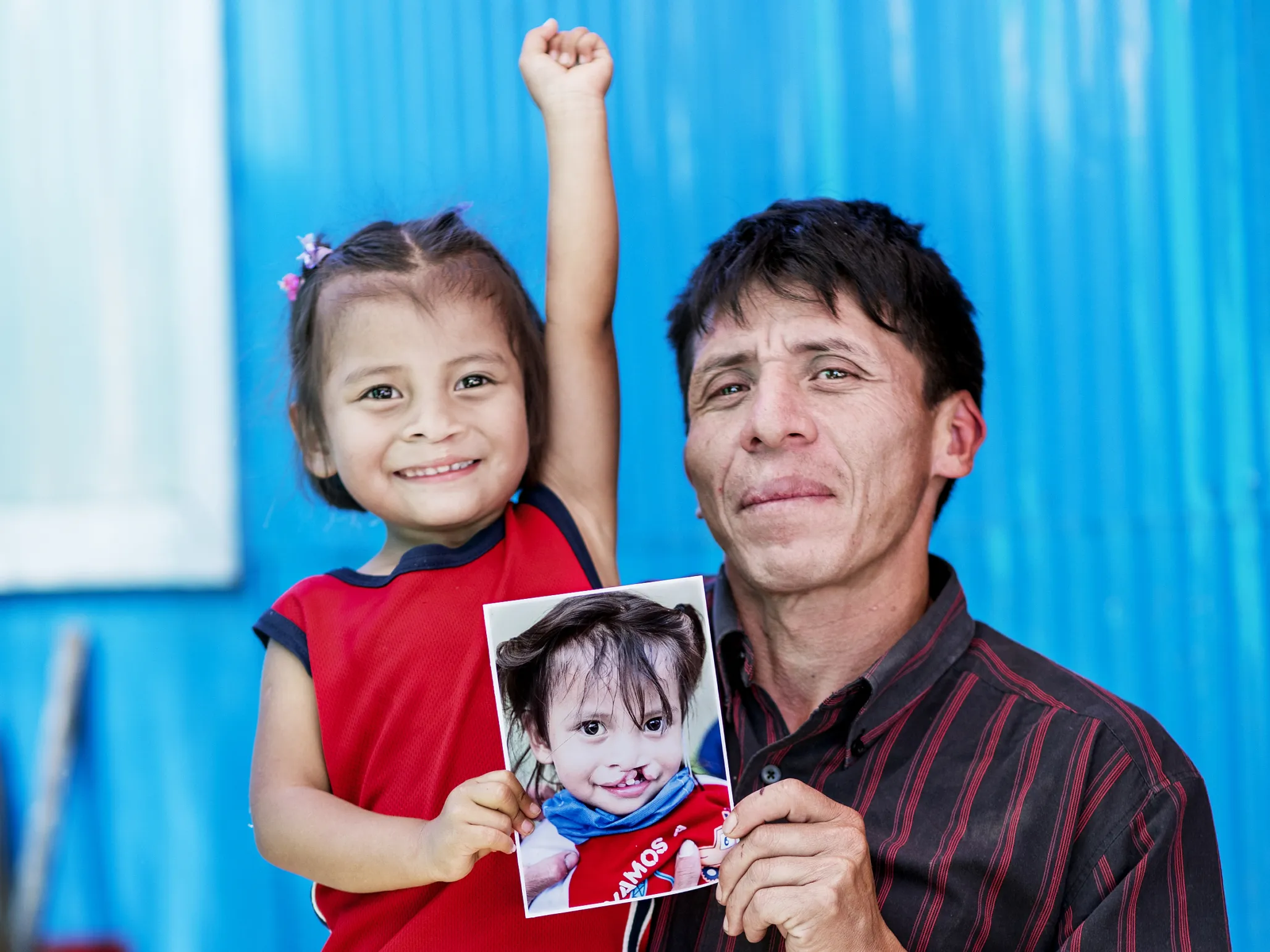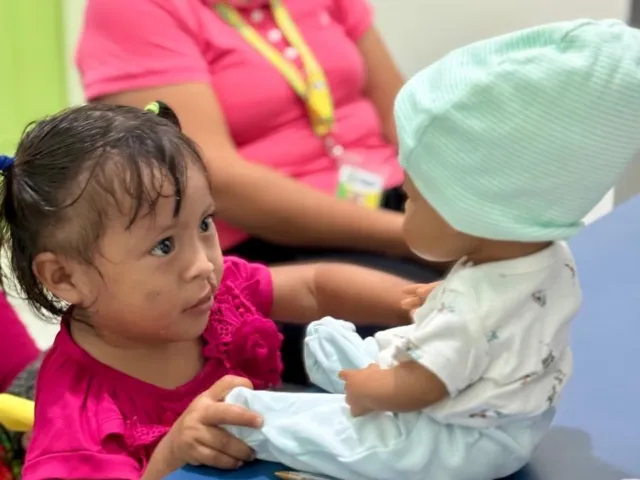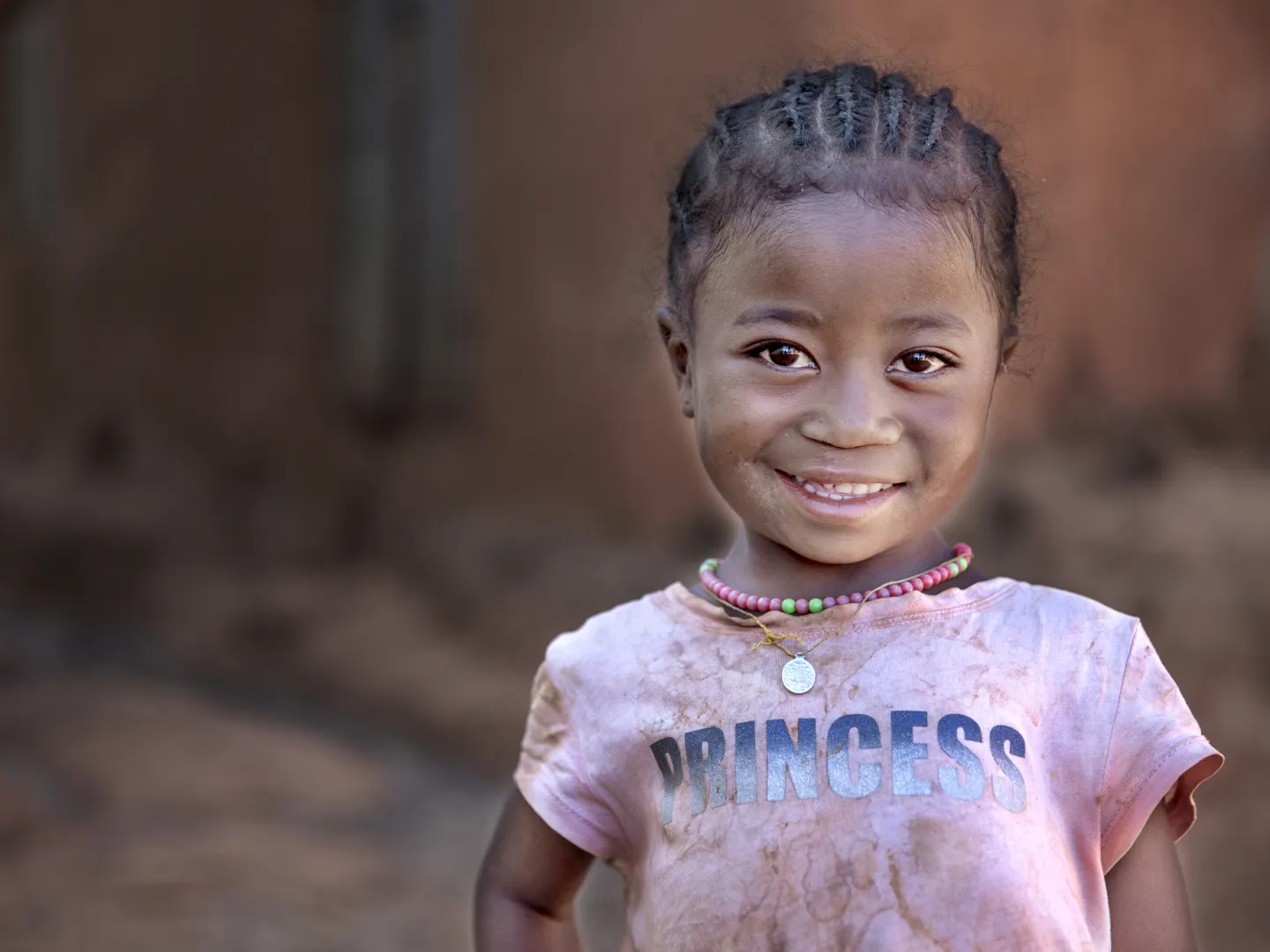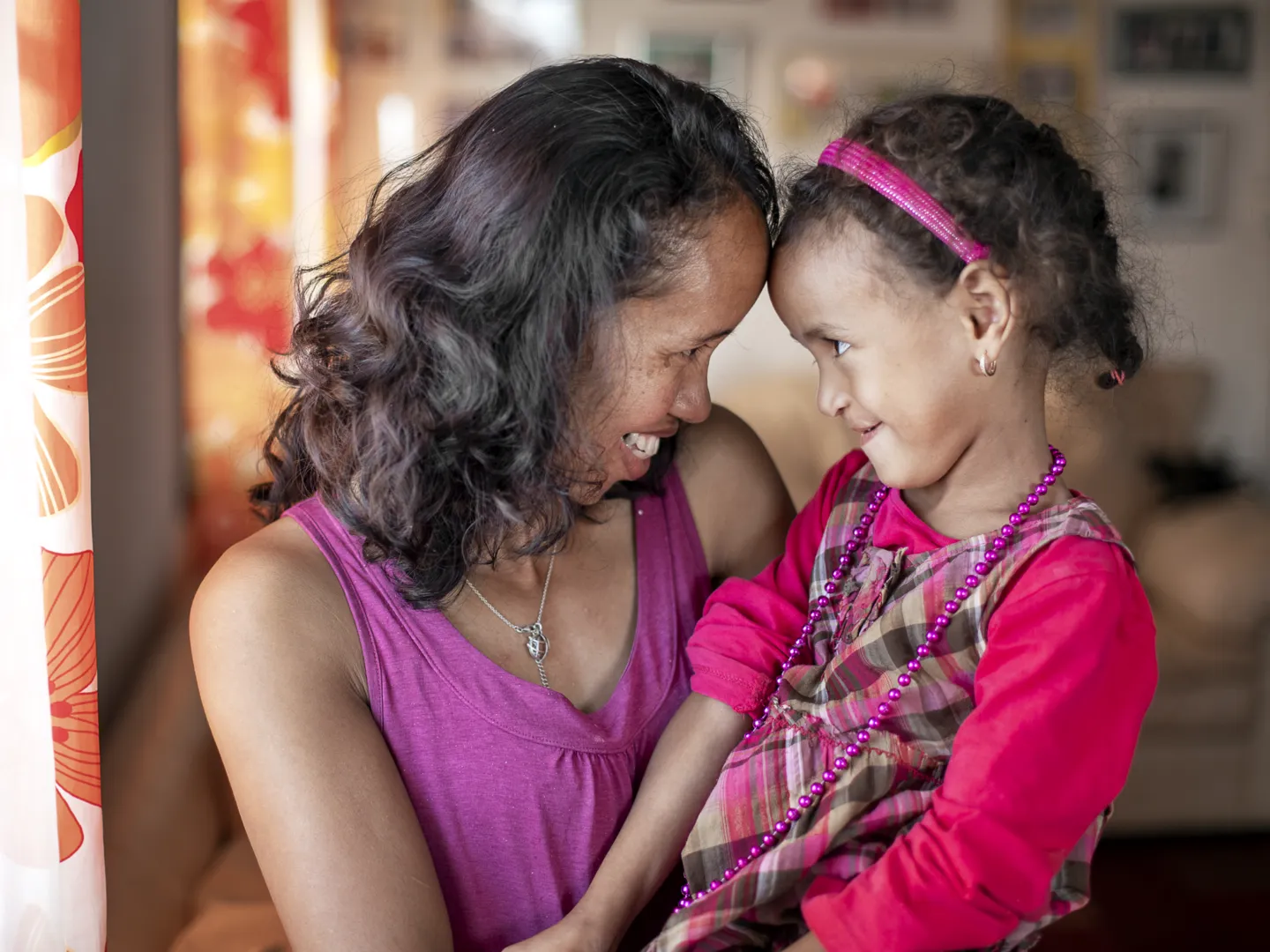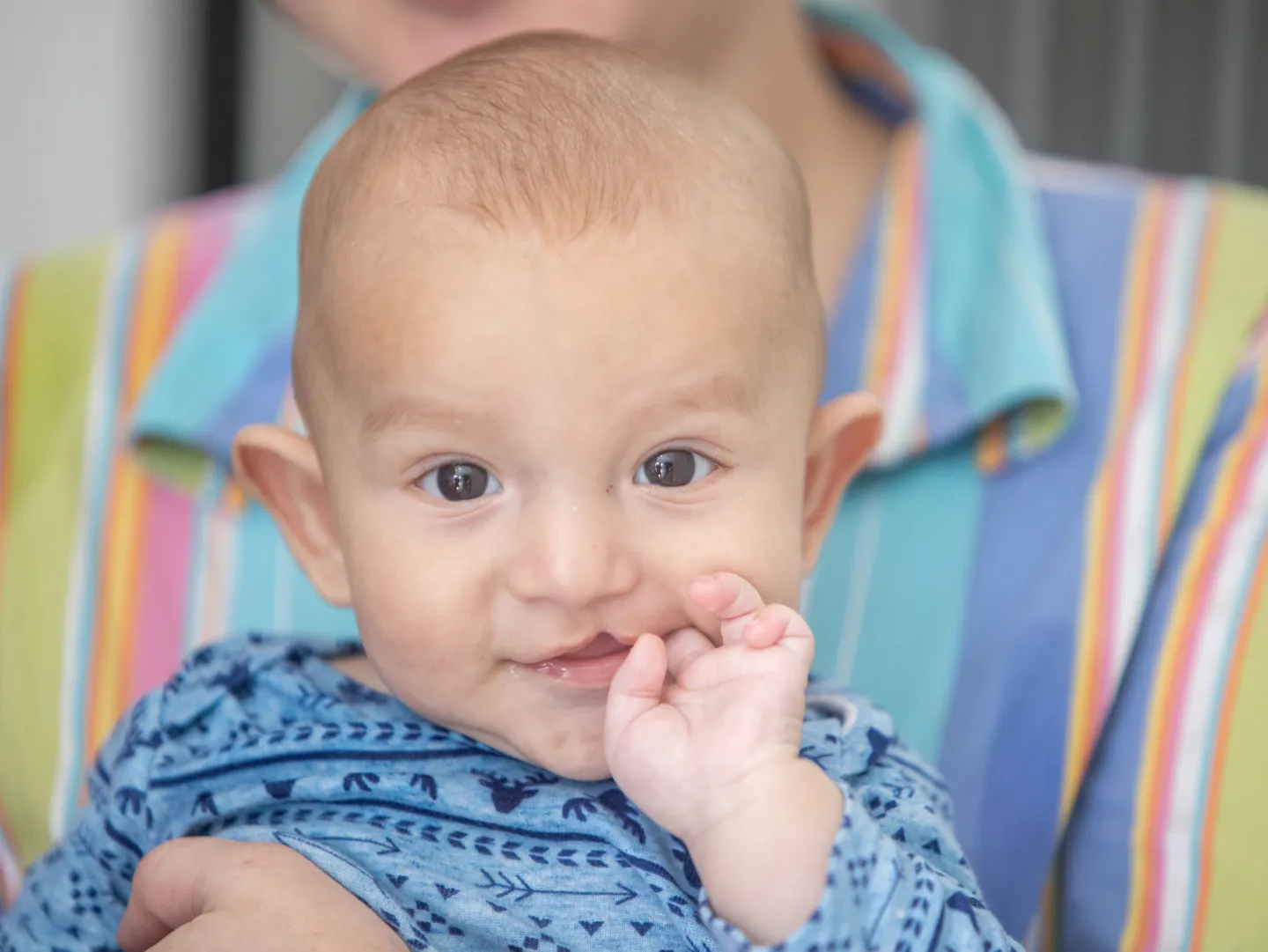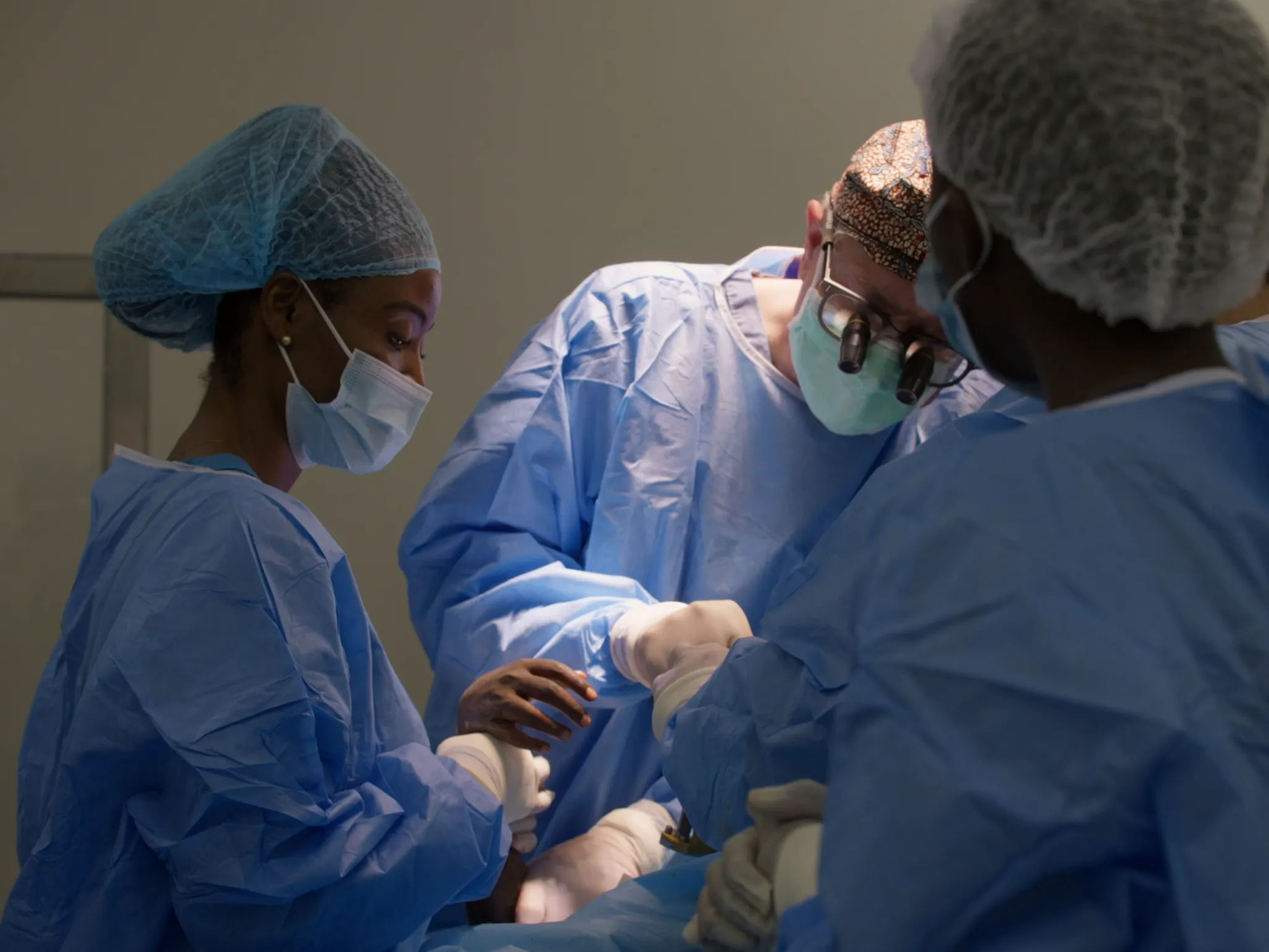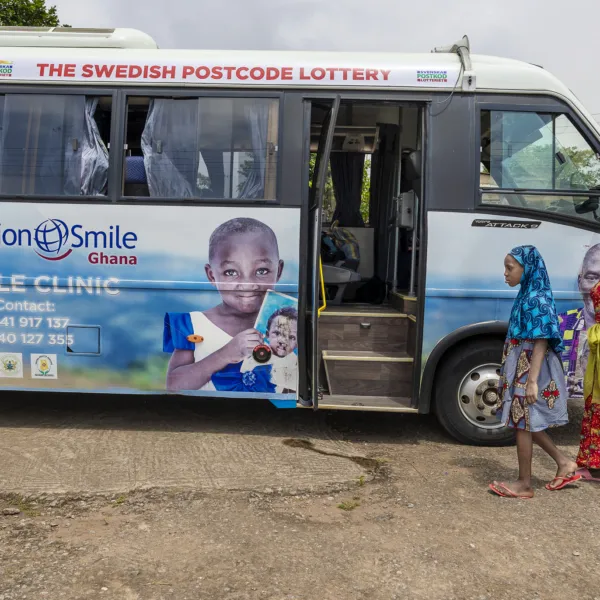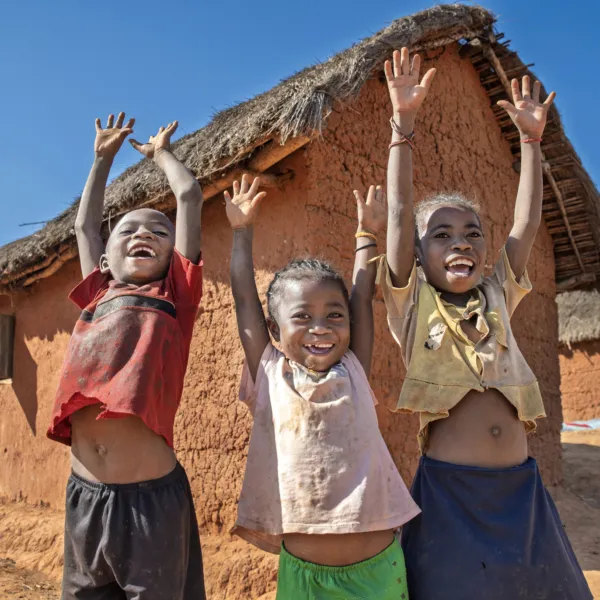Patients
The Road to a Brighter Future Comes with Tears and Smiles
In a remote region of Colombia, Carla finds hope – and laughter – while accessing care for her son Ihan’s cleft conditions.
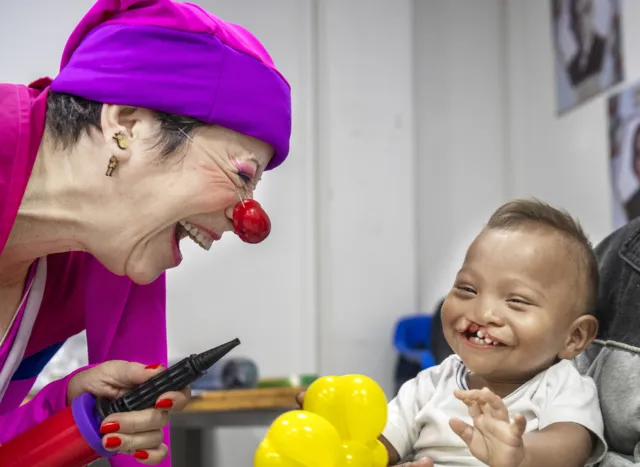
They say laughter is the best medicine, and for one-year-old Ihan and his mother, Carla, that laughter came hand in hand with safe surgical care. As they wait at a hospital in Riohacha in La Guajira, Colombia, for Ihan to receive surgery, four clowns appear with red noses, juggling balls and hula hoops. These are Clowns Without Borders, working in collaboration with Operation Smile and with support from the Postcode Lottery in Sweden. Their mission is to teach a method using play and laughter to help children and parents relax in the stressful situation that a hospital visit — and possibly the child’s first ever — can be, along with the upcoming operation.
Ihan squeezes the clowns’ red noses, and Carla and her brother laugh so hard that tears streamed down their cheeks during the performance. Then they hear Ihan’s name called, and it is their turn to go in and see a physician and begin the procedure. They are about to take the next step in what has been a long, long journey.
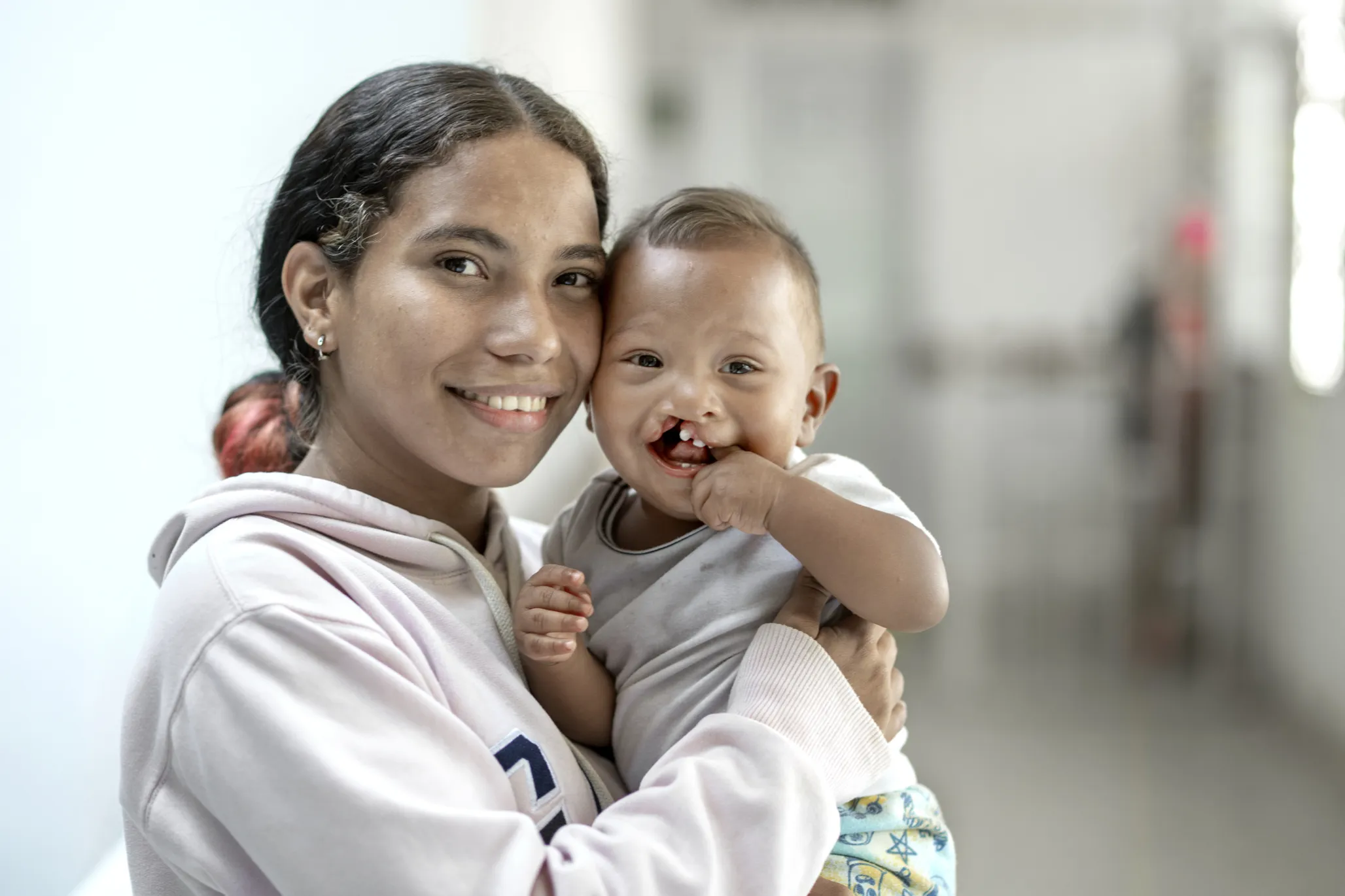
Carla was just a teenager when she and her family fled from a chaotic and politically unstable Venezuela and arrived in Colombia. They didn’t know anyone in the new country. Their life was marked by perseverance. Her parents took on a range of informal, low-wage jobs — working in the fields and on construction sites, selling fruit on the street and cleaning homes — doing whatever they could to provide for their family.
“It was a hard time, very hard,” says Carla.
Today, 21-year-old Carla and her family rent a small, simple house in a village not far from the border with Venezuela. La Guajira is a peninsula at the northernmost tip of Colombia, bordered by the Caribbean Sea. The region is characterized by its arid, sandy landscape dotted with cacti and limited natural resources. Communities here face ongoing challenges, including limited access to clean water, electricity and nutritious food — all factors that contribute to health and development concerns, including malnutrition, particularly among children.
La Guajira is also known as the home of the Wayuu people, one of Colombia’s Indigenous groups, and as the gateway for many refugees from Venezuela. In 2022, this led Operation Smile to launch a pilot project with locally employed female social workers focused on identifying children born with cleft conditions, so they could receive early help and information before the surgical team arrived.
“One of Operation Smile’s core values is to always care for a patient who needs surgery for their cleft, regardless of nationality, age, gender, ethnicity, or religion,” says Marcela Tamayo, secretary general of Operation Smile Colombia.
This commitment is at the heart of Operation Smile’s work: we believe everyone deserves access to safe, quality care — no matter their background or where they come from. Through our Transcending Borders initiative, and in partnership with local NGOs and other organizations, we address gaps in health care and help build stronger systems that are more inclusive, resilient and able to reach underserved communities — making sure no one is left behind.
When Carla became pregnant and was left to face the journey alone, the local team was there to offer early support for her and her family.
“I worked until I was six months pregnant. Only then was I able to get the first ultrasound, and I found out that the baby had a cleft lip and palate. I didn’t know what that was, and everything felt so heavy then.”
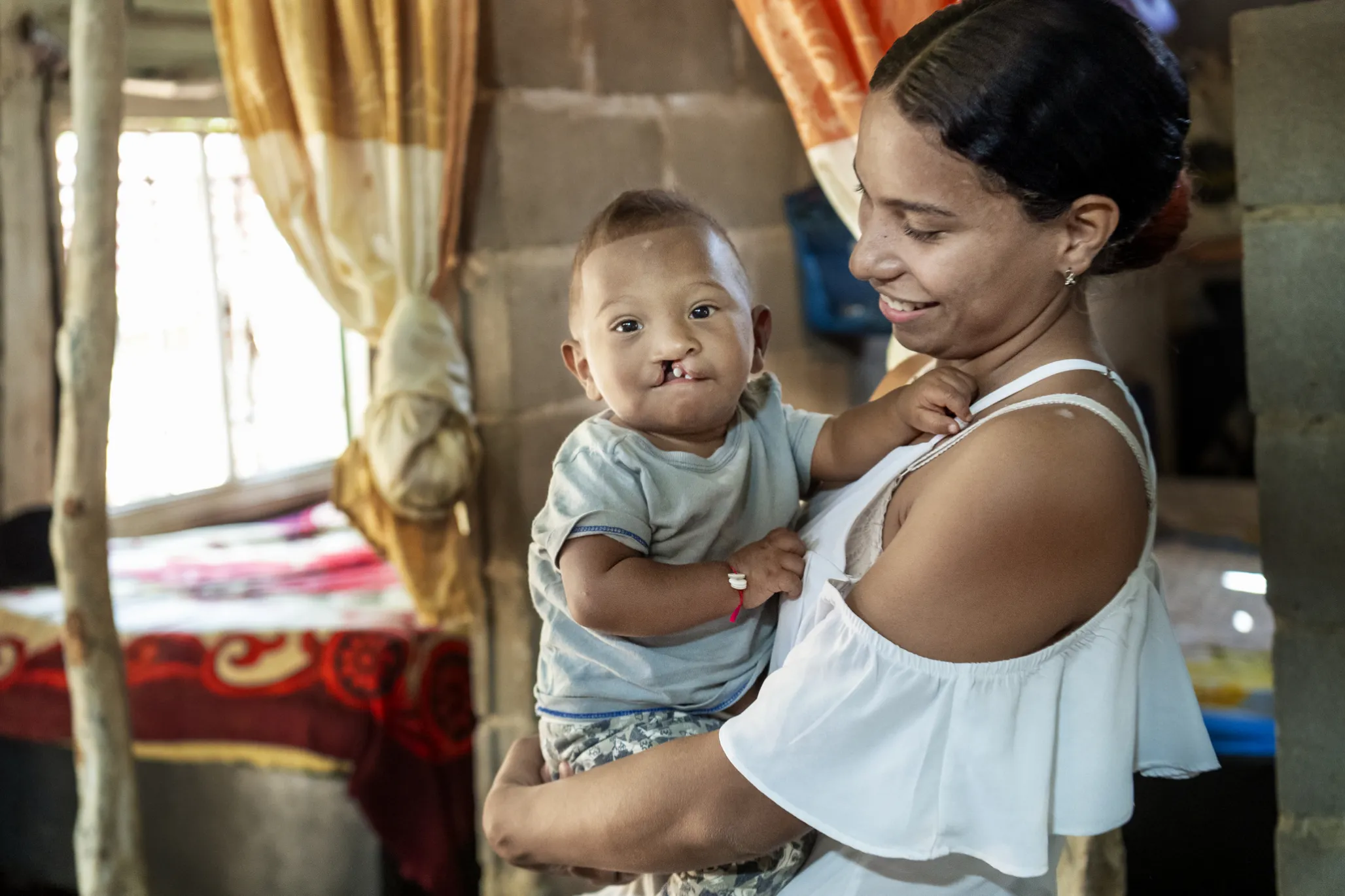
Today, Ihan is just under 1 year old and a little charmer who captivates everyone around him. He just learned to take his first unsteady steps, and his mom, Carla, has to keep a close eye on him all the time. Luckily, she has help from her parents and brother, who support her in everything.
It’s been a tough time since the birth. Ihan couldn’t breastfeed because of his cleft palate and lost weight, as did Carla.
“We tried every way to get breastmilk into him, but he kept losing weight. Eventually, I couldn’t produce any milk, and the only thing I could think was, ‘My baby isn’t gaining weight; my baby isn’t gaining weight.’ The months went by, and thanks to God and the Operation Smile team, who were always there to check on him and support me with advice, things turned around,” says Carla, lifting her son to give him a kiss.
Finally, the day arrives when the family are to travel to the hospital in Riohacha, the main town in La Guajira. A large team of volunteers from different parts of Colombia has arrived at the hospital and started preparing for the medical examinations before the surgeries. Among them are anesthesiologists, nurses, plastic surgeons, dentists and play therapists. All patients who have come to the hospital must undergo a thorough evaluation so the doctors can determine if they are eligible for surgery. It’s hot in the sun, and many parents are trying to stay cool in the courtyard where a tent has been set up to provide shade.
Suddenly, everyone’s attention shifts to four clown who have appeared, weaving their way through the crowd with smiles and juggling balls. Clowns Without Borders have arrived, and the effect they have on relieving anxiety is immediate.
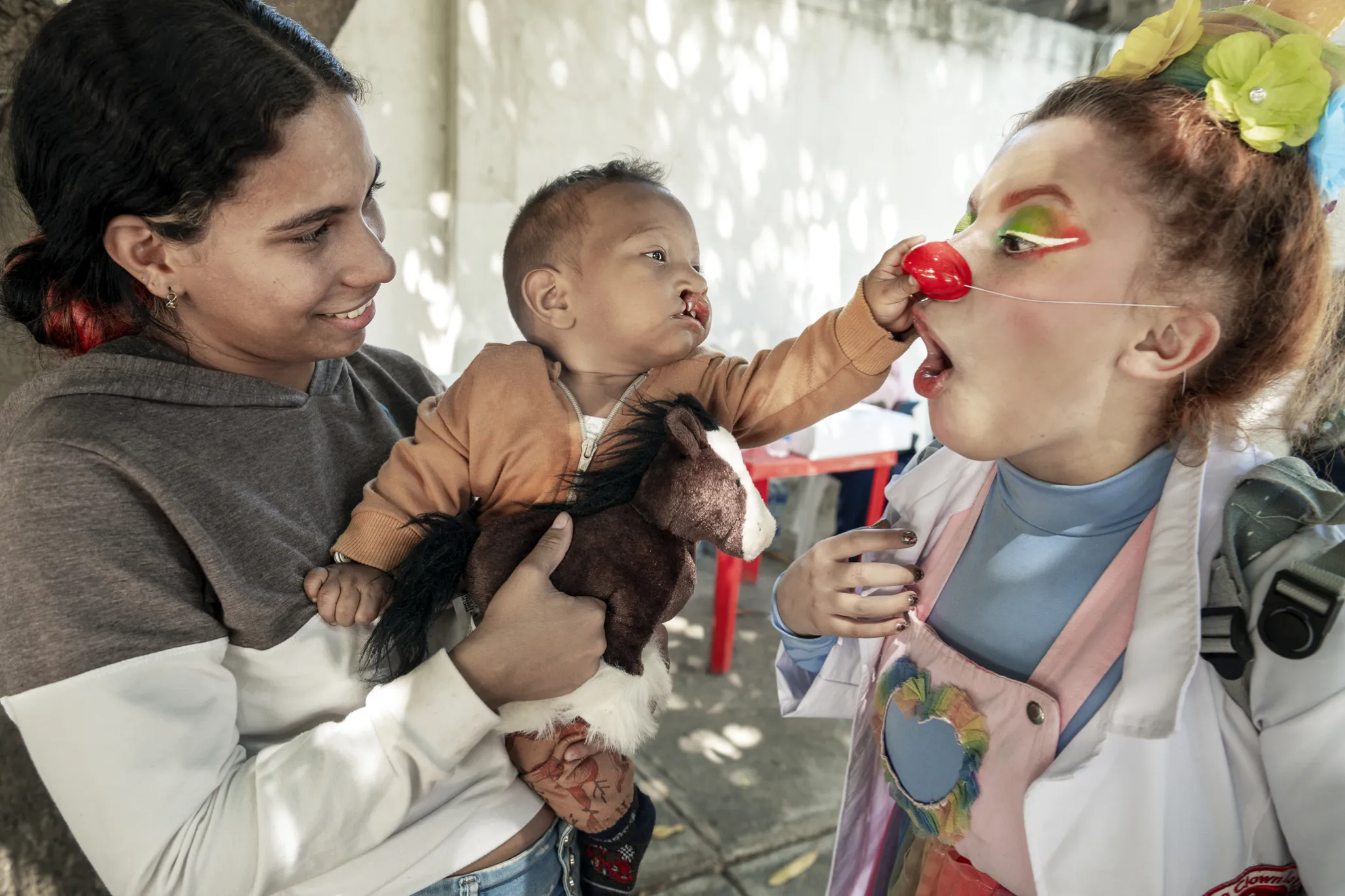
Normally, Clowns Without Borders work in conflict and disaster zones and have extensive experience with children in extremely vulnerable situations. Their task here is to teach their method to local performers and the medical team, and to find a way to incorporate playfulness during the hospital’s surgery week. Partnering with a Colombian organization (Doctora Clown), which has experience working specifically in hospital settings, they form a team that offers children and their parents an unforgettable experience.
“I have 27 years of experience in making children laugh, and what I love most of all is that when they receive this kind of ‘therapy,’ they recover faster. Laughter strengthens the entire immune system! It also helps the medical team relax a bit and allows them to care for the children in a more compassionate and playful way,” says Luz Adriana Neira from Doctora Clown.
“Many children and parents who come here have very high hopes and have waited a long time for an operation. But they also carry a lot of anxiety because they don’t really know what’s going to happen. So being able to help ease that tension and create a safe space through play and laughter allows us to give them a positive experience, which is important,” says Emelie Andersson, a circus performer with Clowns Without Borders.
Ihan and his family are among enjoying a moment of laughter when they hear what they have been hoping for: Ihan’s name is called. He has been approved to move forward with the procedure.

The very next day is the day of the surgery. Ihan is one of the first to undergo surgery in the morning and has been fasting since midnight. The clowns have been with them since early morning, bringing more laughter, but when Carla hands over her little boy to the anesthesiologist, it’s clear that she is nervous. The surgeon is ready inside the operating room. It takes no more than an hour for him to stitch up the cleft in the lip. The cleft in the palate will be operated on at a later time.
When the operation is done, a nurse carries him into the recovery room, where Carla is allowed to join him as he wakes up. When Carla sees him, she breaks into tears again — this time, out of joy.
“My darling, my son,” she says to him, gently caressing his cheek. “You are so beautiful, now it’s over. I’m here with you; you can wake up now. Thank God! You are so beautiful, my child.”
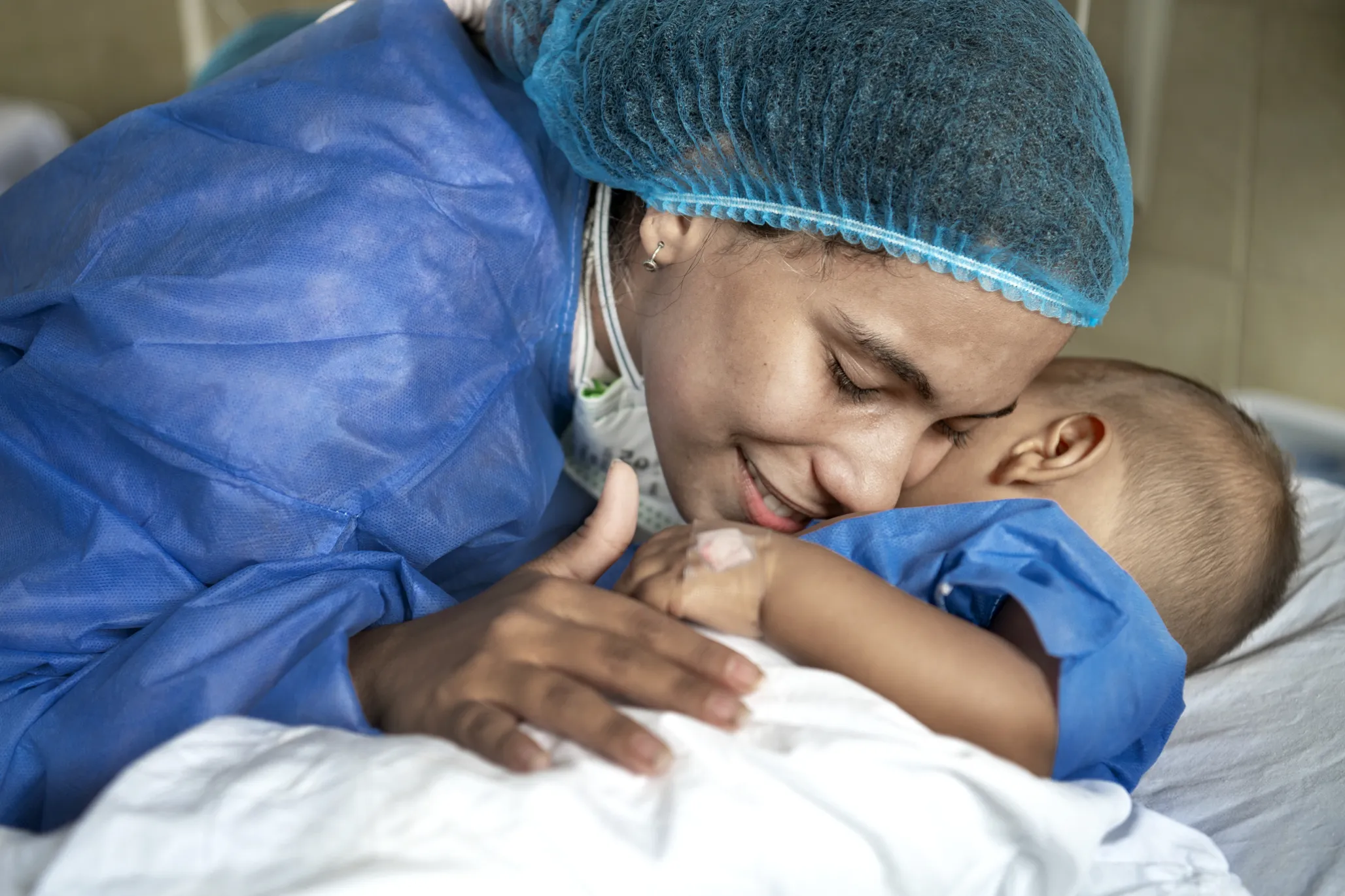
The long wait is over, and after a few days Carla returns home with Ihan. The plastic surgeon who performed the surgery, Dr. Diego Caycedo, says that having the clowns present during surgery week truly makes a difference:
“Yes, it really struck me during these days how well it worked. They helped remove so much fear and anxiety from the parents and also made things easier for the children who don’t understand what the medical team is doing or what surgery means. For the children, everything became like a fun game instead! It has truly made a huge difference for all of us.”

